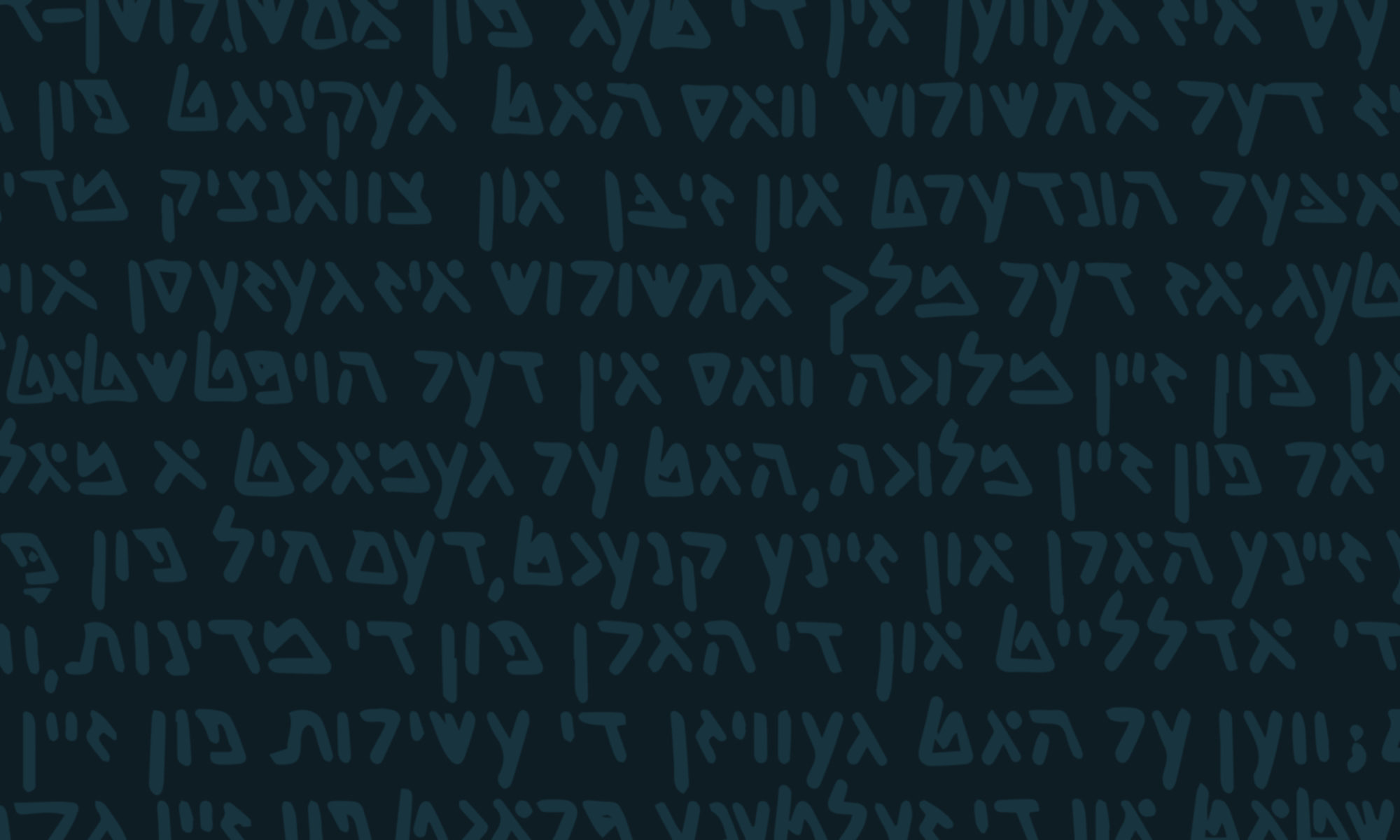The Middle East and Mediterranean Research Center (CERMOM) at the National Institute for Oriental Languages and Civilization in Paris (Inalco) and the Paris Yiddish Center – Medem Library (Maison de la culture yiddish – Bibliothèque Medem) invite paper proposals for the international conference “Yiddish and Translation“, which will take place in Paris, May 6th-8th, 2020, as part of the LJTRAD project, financed by the French National Agency for Research (ANR).
Translation from and into Yiddish has evolved over the centuries. During the Old Yiddish period (14th–18th century), translation was ubiquitous, ranging from the “Ivre-Taytsh” translations of Tanakh, to translation of Hebrew ethical or historical works, and to the creation of bilingual poems, for which it is often difficult to decide which version, the Yiddish or the Hebrew one, was the original. Internal translations from one Jewish language to another were most common, although entertainment literature was often translated into Yiddish from non-Jewish languages. From the 19th century on, the role of internal translation progressively diminished and translation from world literature into Yiddish gradually increased, reaching its acme during the interwar period. As the position of Yiddish literature and culture within the larger context of world literature was then at stake, translators both from and to Yiddish had to deal with several difficulties: Widespread prejudice about the language; the way traditional, religious, and secular conceptions marked linguistic materials; the marginal position of Yiddish in comparison with dominant, imperial languages, etc.
The conference organizers invite proposals for papers in English, Yiddish or French, that address the relationship between Yiddish and translation through the following topics:
- Challenges of translation to and from Yiddish from its earliest stages, through the rise of Hassidism and the Haskole (Jewish Enlightenment) and up to the 20th century and the present.
- Translation between Yiddish and Hebrew during all periods (e.g. the case of self-translations, such as Perl’s or Mendele’s).
- Ideologies which influenced the practice of translation to and from Yiddish.
- Languages into which Yiddish was translated (English, Russian, Polish, German, French, Japanese, etc.) and the history of publishing enterprises which helped define the cultural relationships between Yiddish and those languages.
- How did translation, to and from Yiddish, enable the circulation of Yiddish culture? What was gained and lost in the transfer or what new cultural worlds came into being through the act of translation?
- Strategies of 20th century writers (and of other cultural actors) in introducing Yiddish works into “World Literature” (both as a concept and as a material network and market).
- Major translators and their contributions to the field.
- Stylistic choices of translators, for example, in reflecting particularities of Yiddish literature (orality, use of popular speech, intensive usage of interjections and psycho-ostensive expressions, patterns of repetition, etc.).
- New perspectives in Yiddish translation in collaboration with ongoing and new digital initiatives.
Contributions from a variety of fields (cultural history, literary studies, linguistics, translation studies, etc.) are welcome. Paper proposals dealing with similar questions will also be considered. Scholars interested in presenting a paper are invited to send an abstract (400-500 words) and a short bio (150-200 words) by September 15th, 2019 to ljtrad2021@gmail.com. Contributors will be notified of their admission to the conference by October 15th, 2019.
